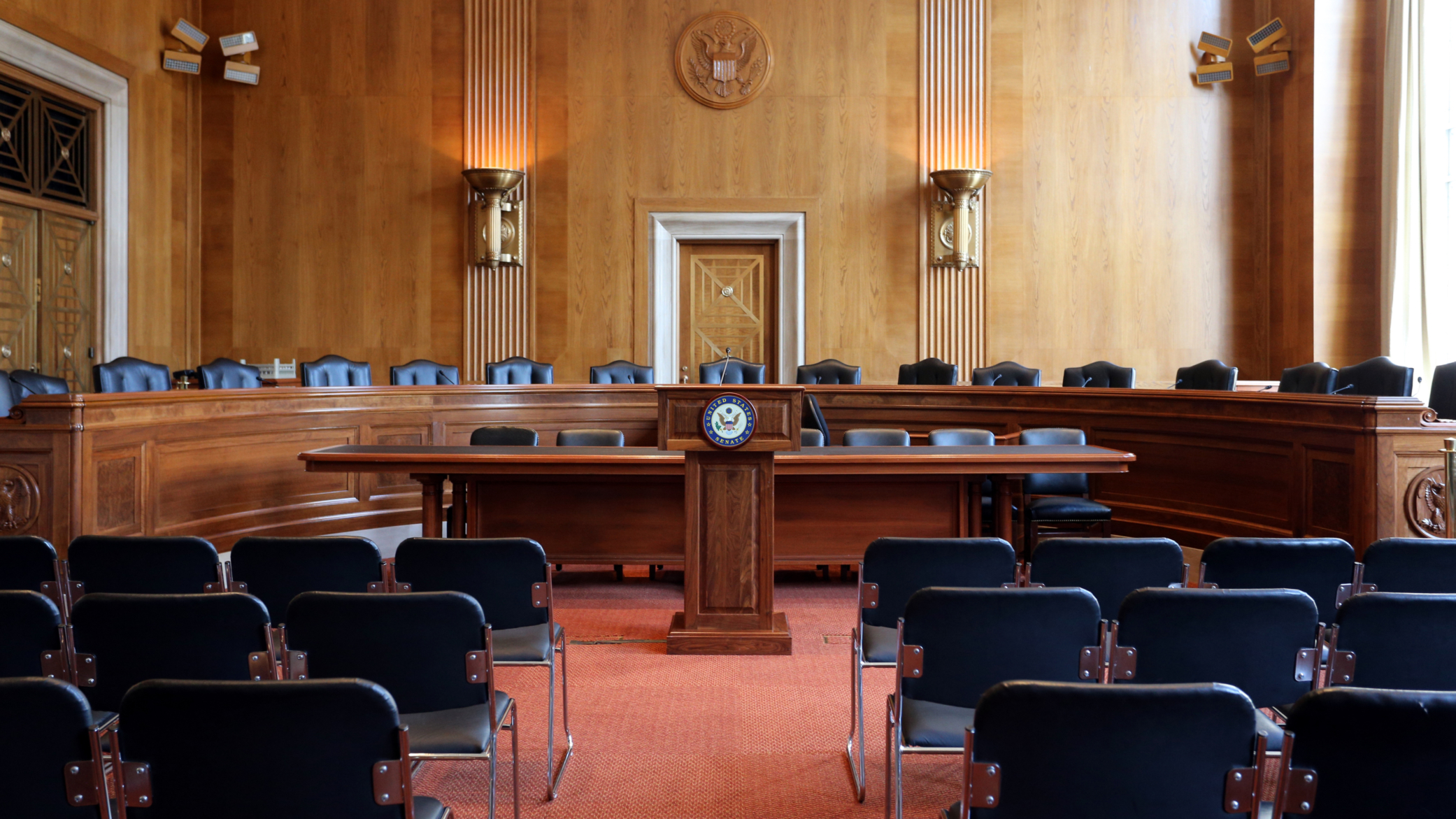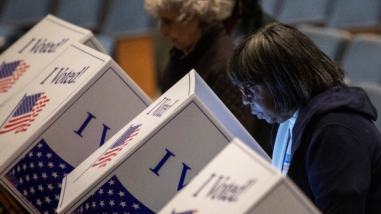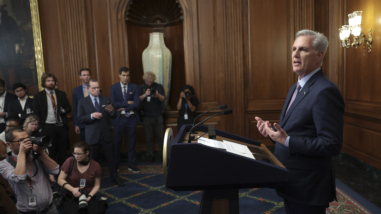Whatever the outcome of the 2018 mid-term elections, oversight in the 116th Congress is likely to retain some partisan characteristics. If Democrats win a majority of seats in either the House of Representatives or the Senate, we could see an uptick in oversight, including highly partisan investigations. If Republicans maintain control, oversight could remain quiet. Meanwhile, we know that full, bipartisan oversight is by far the most effective and powerful way members of Congress can represent their constituents, hold government accountable, and protect the public against abuses by the private sector. But even in a highly charged political environment, there are many ways members and Congress can—and should—use their oversight powers to do their job well.
If the words “congressional oversight” make you think “Benghazi,” “emails,” “Russian meddling” or even “Whitewater,” you’re not alone. But oversight is not limited to those high-profile, partisan committee hearings, or even to Washington, D.C. Meetings with federal officials in a member of Congress’s district, letters to federal agencies, even constituent casework can reveal problems, and solutions, that lead to government action and new legislation. That kind of oversight still occurs, and sometimes across party lines.
Historically, the most respected oversight is bipartisan. A high standard for committee oversight was set by Senator Carl Levin (D-Mich.) during 15 years leading the Permanent Subcommittee on Investigations, the Senate’s premier investigating body. On Levin’s subcommittee, no investigation started unless agreed to by the chair and ranking member. Together, the subcommittee conducted groundbreaking investigations into abuses of the private sector that had tremendous impact on protecting citizens, changing corporate behavior, and enacting new legislation. The subcommittee’s investigations were always bipartisan and focused on facts, forming the foundation for informed debates over policy solutions.
Senator Levin and former subcommittee staff director Elise Bean recently published “Financial Exposure: Carl Levin’s Senate Investigations into Finance and Tax Abuse.” She says the subcommittee’s investigations during Levin’s tenure included the collapse of Enron, secret offshore accounts opened for American clients by Swiss banks, money laundering misdeeds at HSBC, abusive credit card practices, wrongdoing by Goldman Sachs during the financial crisis, and more. Those inquiries got results: stronger accounting standards, safeguards against money laundering, tighter credit card and bank controls, and greater tax transparency measures for multinational corporations.
Bean, now director of the Washington office of the Levin Center at Wayne State University Law School, insists bipartisan practices were key to the subcommittee’s success. “Standard subcommittee practice was for the Democratic and Republican staffs to do all of their fact finding together, using a joint investigative plan, joint document requests, and joint witness interviews. Witnesses facing this unity had difficulty opposing its information requests. The staff then worked together to analyze and write up the investigative results and produce joint press releases.” And she urges the next Congress to “aim for the gold standard in oversight with fact-based and bipartisan policy-oriented investigations” to achieve meaningful reforms and restore public confidence in Congress.
Even in today’s polarized and hyper-partisan environment, that’s not impossible. For example, the Republican chair and Democratic co-chair of the Senate Select Committee on Intelligence labored successfully to keep its investigation and report, “Russian Targeting of Election Infrastructure During the 2016 Election,” bipartisan. Meanwhile, the House Permanent Selection Committee on Intelligence’s probe on the same issue devolved into a rancorous, highly partisan exercise.
Effective oversight responds to concerns at the district level that matter nationally. At its heart, the power of congressional oversight is to protect the interests of the Americans Members of Congress represent. Good oversight often starts with something Members hear in their district, and it matters for Americans nationally.
For example, Rep. Walz (D-Minn.) and Rep. Steven Palazzo (R-Miss.) collaborated on successful legislation to extend equal benefits to National Guard and Reserve members called to active duty. That bill originated in 2016 when Walz’s caseworkers “began receiving numerous complaints from constituents that soldiers and airmen from the National Guard and Reserves, who had been deployed overseas, were not getting the same benefits as their active duty peers.” The case is documented in a study from the Partnership for Public Service, which shows how Rep. Walz worked with Rep. Palazzo, who was a member of the Mississippi National Guard and Rep. Walz’s co-chair on the House National Guard and Reserve Components Caucus. They succeeded in getting educational benefits and health coverage for National Guard and Reserve troops into law.
The best oversight uses the tools and resources Congress possesses. In recent years, bipartisan oversight has atrophied, and with it, the knowledge of how to conduct rigorous, fair, fact-based inquiries. Congress has many tools at its disposal, and several of the organizations supported through Hewlett’s Madison Initiative collaborate to teach congressional staff how to use them.
For example, many newer staff ask how to make a Freedom of Information Act (FOIA) request for data from federal agencies, not knowing that Congress can demand the information without using FOIA. Similarly, fewer staff know the procedure for issuing a congressional subpoena, which can be essential to an oversight investigation, or how to best take advantage of the Government Accountability Office or the agencies’ Inspectors General.
The Project on Government Oversight (POGO), The Levin Center, and The Lugar Center (led by former Senator Richard Lugar (R-Ind.) jointly offer intensive, two-day “boot camps” for congressional staff to learn these tactics and more. In the last two years, more than 150 House and Senate staff have taken these courses.
To jump-start effective oversight in the 116th Congress, the Project on Government Oversight (POGO) and other nonprofits are holding the first annual Oversight Summit on November 16 in Washington, D.C. It will bring together congressional and executive branch staff, scholars, journalists, experts, and others to discuss how to reset Congress’s approach and priorities.
This year’s elections will usher in a wave of new members of Congress, eager to “get things done”. They can get right to work on helping their constituents and the larger public on matters larger and small if they have staff members trained in the tools of quality oversight and a willingness to reach across the aisle.
Regardless of the outcome of the November elections, Democrats and Republicans in Congress – together if they can, separately if they must – should deploy vigorous, substantive oversight to help constituents, protect the country, write better laws, and make sure taxpayer dollars are wisely spent.
* The Hewlett Foundation’s Madison Initiative seeks to strengthen U.S. democracy and restore public trust in Congress. It is nonpartisan and supports nonprofit organizations across the ideological spectrum. This includes the organizations mentioned here that are working to strengthen congressional oversight. More information can be found in our grants database about The Levin Center at Wayne Law, The Lugar Center, The Partnership for Public Service, and The Project on Government Oversight.




